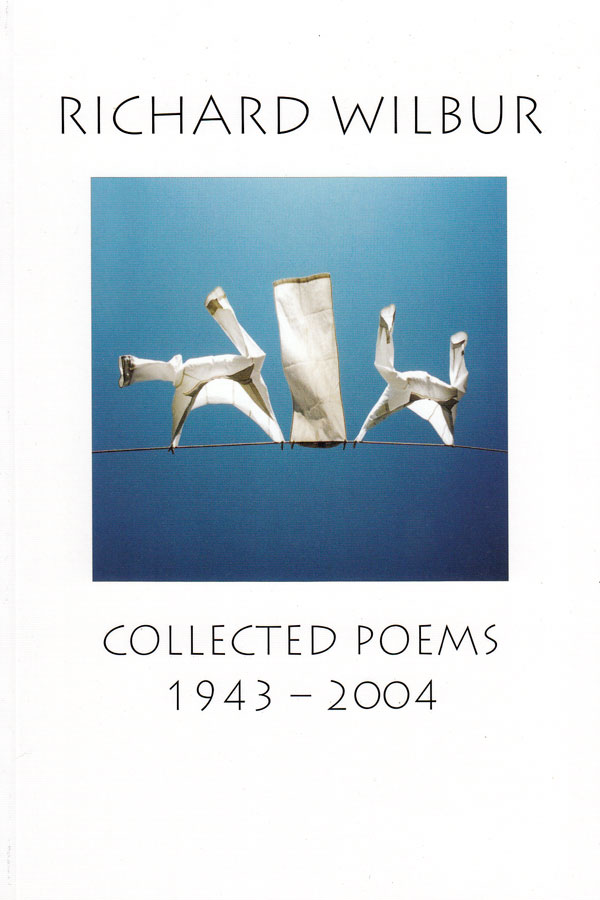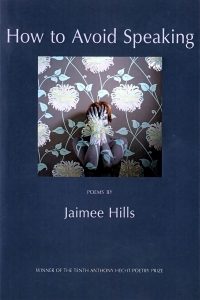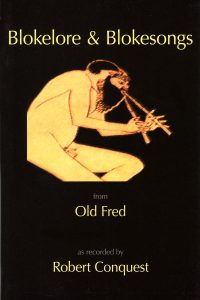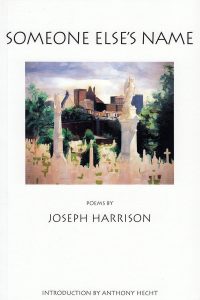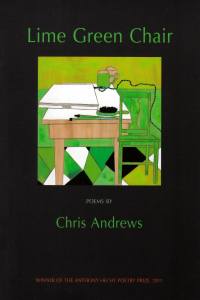Collected Poems 1943–2004
£14.99
Over the course of his distinguished sixty-year career, Richard Wilbur has written numerous collections of poetry, five children’s books, and several works of prose and translation. This “handsome and in every sense weighty volume”, as the critic William Pritchard called it, presents a comprehensive collection of Wilbur’s work, including complete texts of Mayflies (2000), New and Collected Poems (1987), The Mind-Reader (1976), Walking to Sleep (1969), Advice to a Prophet (1961), Things of This World (1956), Ceremony (1950), and The Beautiful Changes (1947). To these have been added thirteen poems written since Mayflies's original appearance, some of Wilbur's show lyrics, and his Poems for Children and Others: "Opposites", "More Opposites", "A Few Differences", "The Disappearing Alphabet" and "The Pig in the Spigot".
As well as containing an introduction by the author, the UK edition of the Collected Poems comes complete with an index of Titles and First Lines.
Out of stock
Collected Poems 1943–2004
“It is a consolation to read through sixty years of Richard Wilbur’s poetry. He should be read in the company of … Robert Frost and Wallace Stevens.” – Harold Bloom
Reviews of Collected Poems 1943–2004
Times Literary Supplement, September 22nd 2006
"The poetry of Richard Wilbur has been famous for over half a century, both for epitomizing a kind of craftsmanship which might be called European – like the work of a similarly notable contemporary, the late Anthony Hecht – and for a view of life and the world which is neither as thoroughly pessimistic nor as insistent as the one the times have seemed to commend to many American poets … [M]ore than any other contemporary poet, [Wilbur] is able to demonstrate the power of happiness to write something other than white, able to affirm ‘Any greenness is deeper than anyone knows’ and, at the same time, and for the same ultimate purpose, to demonstrate that a rich and elaborate technique amounts to more than a set of decorous historical impedimenta … It would be a poor canon which did not include a generous sample from Wilbur’s body of work … – Sean O’Brien
PN Review, July-August 2006
"In a career spanning more than sixty years, Richard Wilbur has devoted himself to organising the daylight and exploring the darkness. A musical, formal and cultured poet, his latest Collected is a continuing triumph. At 85 he has outlived most of his peers. Yet he is still producing those elegantly constructed, metrical investigations into our lives … Wilbur is a poet of rare talent. He is an important American poet, and The Waywiser Press has done a great good in producing what must substantially be a life’s work. At £14.99 it would be a hard reader who did not feel more than amply rewarded." – Tony Roberts
The Guardian, March 25th 2006
"For 60 years Richard Wilbur has remained in the front rank of contemporary poets, always present, patiently defying trends, a lucid thinker whose poems stick in the mind and whose virtuosity never ceases to astonish and gratify his readers. While the earlier poems – those of the late 40s to the 60s – probably represent his best work, this capacious and inclusive volume is welcome, pulling into print his major collections, some of his remarkable translations and his delightful verses for children … [Wilbur’s] career, in its sweep and steadiness, its dedication to classical principles, reminds us that fashions will come and go, in poetry as in all things, but that the artist must pursue clarity of vision, asking only for grace. [He] has never wavered as an artist, and there is grace enough for any reader in this varied, boundless volume." – Jay Parini
To read the whole of this review, please click the link:"The Poet as Heliotrope"
Acumen
"Richard Wilbur’s Collected Poems 1943-2004 is an essential collection, the gathered work of one of America’s greatest poets … [T]his splendid collection ought to lead to a reconsideration of his achievement." – Glyn Pursglove
Poetry Review
"Besides the Richard Wilbur that all serious American, and many British, readers know, there are at least four others no one talks about. The familiar Wilbur presents a technically flawless paradigm of dignified, mostly stanzaic, mostly rhyming verse, much of it devoted to beautiful forests, statuary, easel paintings, married love and parenthood, a paradigm to which young poets disenchanted with recent styles resort: this Wilbur detects ‘a poignancy in all things clear’, likens poets to architects and jugglers, and advises that ‘a heaven is easier made of nothing at all / Than the earth regained’. This Wilbur is real, valuable, and at least as talented as his acolytes suggest. But there are others, all valuable in themselves. This hefty Collected (his third overall, his first since 1987, and the first to include his verse for children) offers the juggler-architect along with: a shocked (even shell-shocked) American soldier; a fiercely partisan political liberal; a versatile translator; and a thoughtful, almost Hardyesque singer of subdued grief." – Stephen Burt
Washington Post
“Throughout his career Wilbur has shown, within the compass of his classicism, enviable variety. His poems describe fountains and fire trucks, grasshoppers and toads, European cities and country pleasures. All of them are easy to read, while being suffused with an astonishing verbal music and a compacted thoughtfulness that invite sustained reflection. Besides, they are so beautiful one simply wants to go back to them again and again.” – Michael Dirda
New Yorker
“No other twentieth-century American poet, with the possible exception of James Merrill, demonstrates such a Mozartean felicity in the writing of verse … “ – Adam Kirsch
Slate
“Richard Wilbur …. is the author of half a dozen of the most perfectly made poems of the twentieth century, poems whose quiet elegance is unexcelled by even the most illustrious names American poetry can offer … His achievement is permanent.” – James Longenbach
(from New Poems [2004])
Mere minutes from Duval Street’s goings-on,
The midnight houses of this quiet block,
With their long-lidded shutters, are withdrawn
In sleep past bush and picket, bolt and lock,
Yet each façade is raked by the strange glare
Of halogen, in which fantastic day
Veranda, turret, balustraded stair
Glow like the settings of some noble play.
As if the isle were Prospero’s, you seem
To glimpse great summoned spirits as you pass.
Cordelia tells her truth, and Joan her dream,
Becket prepares the sacrifice of Mass,
A dog-tired watchman in that mirador
Waits for the flare that tells of Troy’s defeat,
And other lofty ghosts are heard, before
You turn into a narrow, darker street.
There, where no glow or glare outshines the sky,
The pitch-black houses loom on either hand
Like hulks adrift in fog, as you go by.
It comes to mind that they are built on sand,
And that there may be drama here as well,
Where so much murk looks up at star on star:
Though, to be sure, you cannot always tell
Whether those lights are high or merely far.
The Waywiser Press
Juggler
(from Ceremony [1950])
A ball will bounce, but less and less. It’s not
A light-hearted thing, resents its own resilience.
Falling is what it loves, and the earth falls
So in our hearts from brilliance,
Settles and is forgot.
It takes a sky-blue juggler with five red balls
To shake our gravity up. Whee, in the air
The balls roll round, wheel on his wheeling hands,
Learning the ways of lightness, alter to spheres
Grazing his finger ends,
Cling to their courses there,
Swinging a small heaven about his ears.
But a heaven is easier made of nothing at all
Than the earth regained, and still and sole within
The spin of worlds, with a gesture sure and noble
He reels that heaven in,
Landing it ball by ball,
And trades it all for a broom, a plate, a table.
Oh, on his toe the table is turning, the broom’s
Balancing up on his nose, and the plate whirls
On the tip of the broom! Damn, what a show, we cry:
The boys stamp, and the girls
Shriek, and the drum booms
And all comes down, and he bows and says good-bye.
If the juggler is tired now, if the broom stands
In the dust again, if the table starts to drop
Through the daily dark again, and though the plate
Lies flat on the table top,
For him we batter our hands
Who has won for once over the world’s weight.
The Waywiser Press
Excerpts
Security Lights, Key West
(from New Poems [2004])
Mere minutes from Duval Street’s goings-on,
The midnight houses of this quiet block,
With their long-lidded shutters, are withdrawn
In sleep past bush and picket, bolt and lock,
Yet each façade is raked by the strange glare
Of halogen, in which fantastic day
Veranda, turret, balustraded stair
Glow like the settings of some noble play.
As if the isle were Prospero’s, you seem
To glimpse great summoned spirits as you pass.
Cordelia tells her truth, and Joan her dream,
Becket prepares the sacrifice of Mass,
A dog-tired watchman in that mirador
Waits for the flare that tells of Troy’s defeat,
And other lofty ghosts are heard, before
You turn into a narrow, darker street.
There, where no glow or glare outshines the sky,
The pitch-black houses loom on either hand
Like hulks adrift in fog, as you go by.
It comes to mind that they are built on sand,
And that there may be drama here as well,
Where so much murk looks up at star on star:
Though, to be sure, you cannot always tell
Whether those lights are high or merely far.
The Waywiser Press
Juggler
(from Ceremony [1950])
A ball will bounce, but less and less. It’s not
A light-hearted thing, resents its own resilience.
Falling is what it loves, and the earth falls
So in our hearts from brilliance,
Settles and is forgot.
It takes a sky-blue juggler with five red balls
To shake our gravity up. Whee, in the air
The balls roll round, wheel on his wheeling hands,
Learning the ways of lightness, alter to spheres
Grazing his finger ends,
Cling to their courses there,
Swinging a small heaven about his ears.
But a heaven is easier made of nothing at all
Than the earth regained, and still and sole within
The spin of worlds, with a gesture sure and noble
He reels that heaven in,
Landing it ball by ball,
And trades it all for a broom, a plate, a table.
Oh, on his toe the table is turning, the broom’s
Balancing up on his nose, and the plate whirls
On the tip of the broom! Damn, what a show, we cry:
The boys stamp, and the girls
Shriek, and the drum booms
And all comes down, and he bows and says good-bye.
If the juggler is tired now, if the broom stands
In the dust again, if the table starts to drop
Through the daily dark again, and though the plate
Lies flat on the table top,
For him we batter our hands
Who has won for once over the world’s weight.
The Waywiser Press

